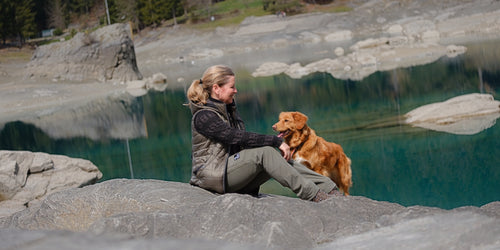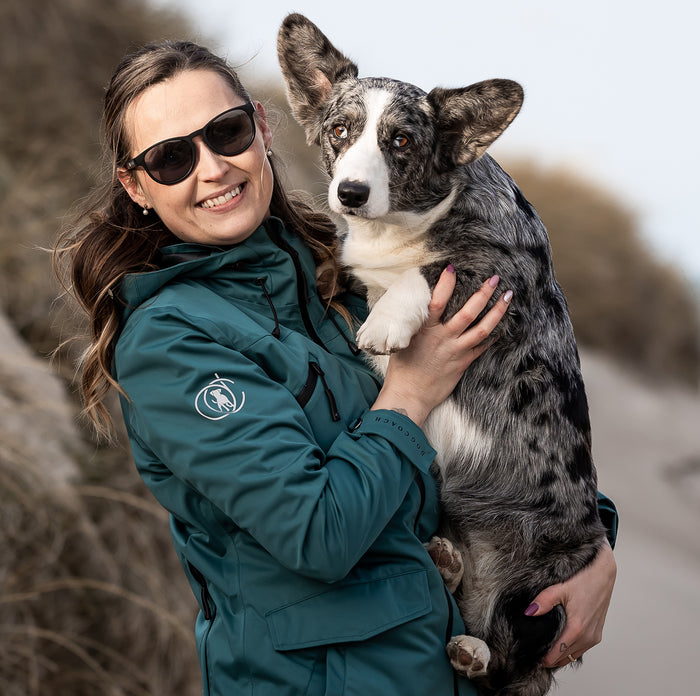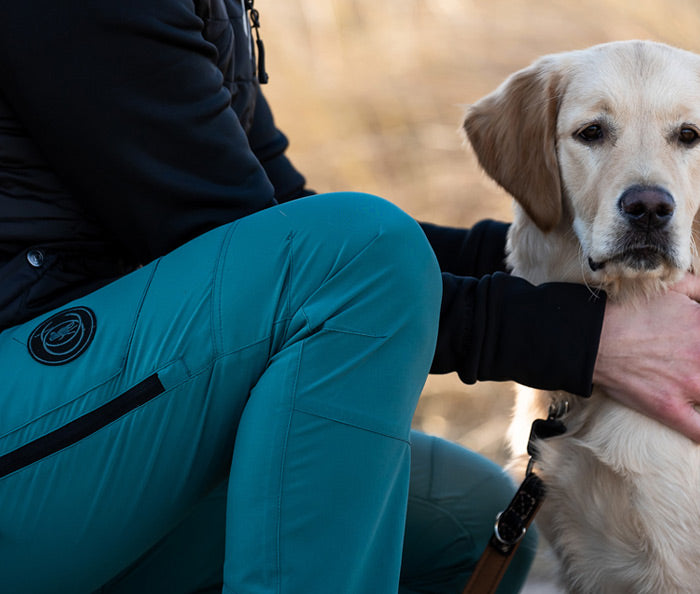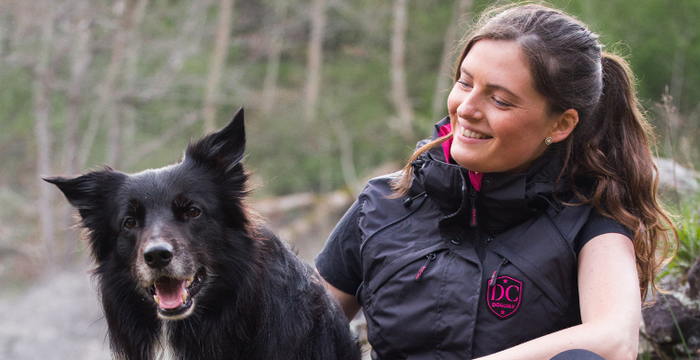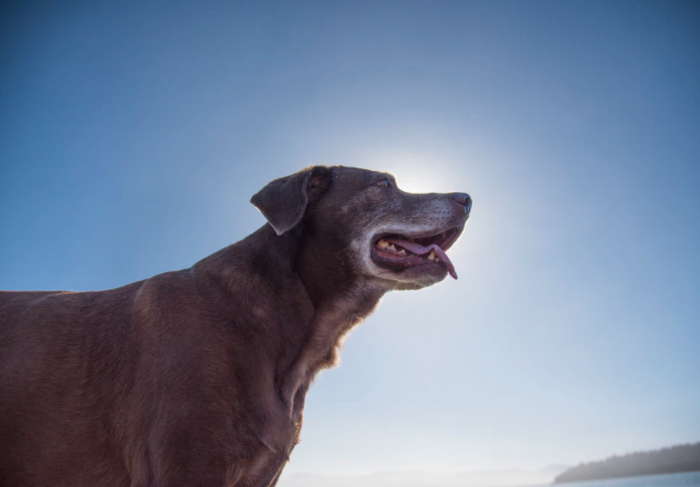
Older family dogs do not retire as such, but as they age, dogs will cut back on activities and the signs of age will start to show.
Your dog might no longer jump out of her bed or basket, and gets tired faster and is not as active as before. These are some of the things that can come with having an older dog - also called a senior dog. But if you take good care of your senior dog, she can have many fruitful golden years.
In collaboration with veterinarian Anne Dorthe Broe, we have outlined signs that your dog may be approaching senior age, and how to properly care for her as she grows older.
When is my dog a senior?
The first question that arises is when exactly does a dog become a senior, but there is no set rule for that. There is no specific age when a dog is senior - for some dogs it will be sooner or later than others, but generally these are some milestones to keep in mind:
- Giant breeds start showing signs of aging from 5-6 years of age
- Large breeds show signs of aging at around 8 years
- Medium breeds show signs of aging at around 8-10 years
- Small breeds show signs of aging at around 10-12
What are the signs of aging?
The signs of age come gradually, and it is rare for the owner to notice the very first signs immediately. However, if your dog has reached senior age, some of the signs may be:
- He jumps around less, moves less and is not as fast nor as agile as before
- He sleeps more, and may also have become more sedentary and prefers to lie on a softer and warmer area
- He gradually becomes more rigid in his body and movements
- He may develop arthritis, with symptoms varying from light stiffness when rising to immobility or reluctance to move. For example, he may not jump into the car any more
- He loses muscle, partly from moving less and being less active, but also simply as an aspect of aging
- Vision and hearing gradually become worse
- Teeth become loose and need cleaning more than before
How do I give my senior dog a good life?
As a dog owner, you can help your senior dog a lot. You can have a wonderful time together, especially when your dog knows your daily routines and takes it a little more calmly than in the young years. And you can both enjoy knowing each other inside and out!
- Make sure your dog doesn't gain too much weight. If she is overweight, then help her lose weight by choosing a diet that satiates with fewer calories. If your dog is overweight it is hard on her joints and body and negatively affects her metabolism. It can also increase the risk of diabetes.
- Choose a dog food that is formulated for older dogs - one that will help maintain weight, supports joints and strengthens the immune system.
- Potentially supplement their diet with vitamins and/or essential fatty acids that benefit joints and strengthen the immune system, skin and fur.
- If your dog likes water, swimming is a good activity: Heated water is a balm for stiff joints, and a gentle form of exercise.
- Give your dog an extra thick pillow or bed raised above the floor so it isn’t exposed to drafts, which can cause even more stiffness to the joints.
- Exercise for senior dogs helps keep them healthy. Find an exercise that suits your dog’s breed, age and physique.
- Watch for changes in behavior, appetite and thirst. Regularly check your dog's teeth and check her body for lumps, and have them checked if you discover any.
- Visit your veterinarian for an annual health check up, and possibly have a blood test taken to assess your dog's liver and kidney values and metabolism.
- Pamper her with lots of love!







